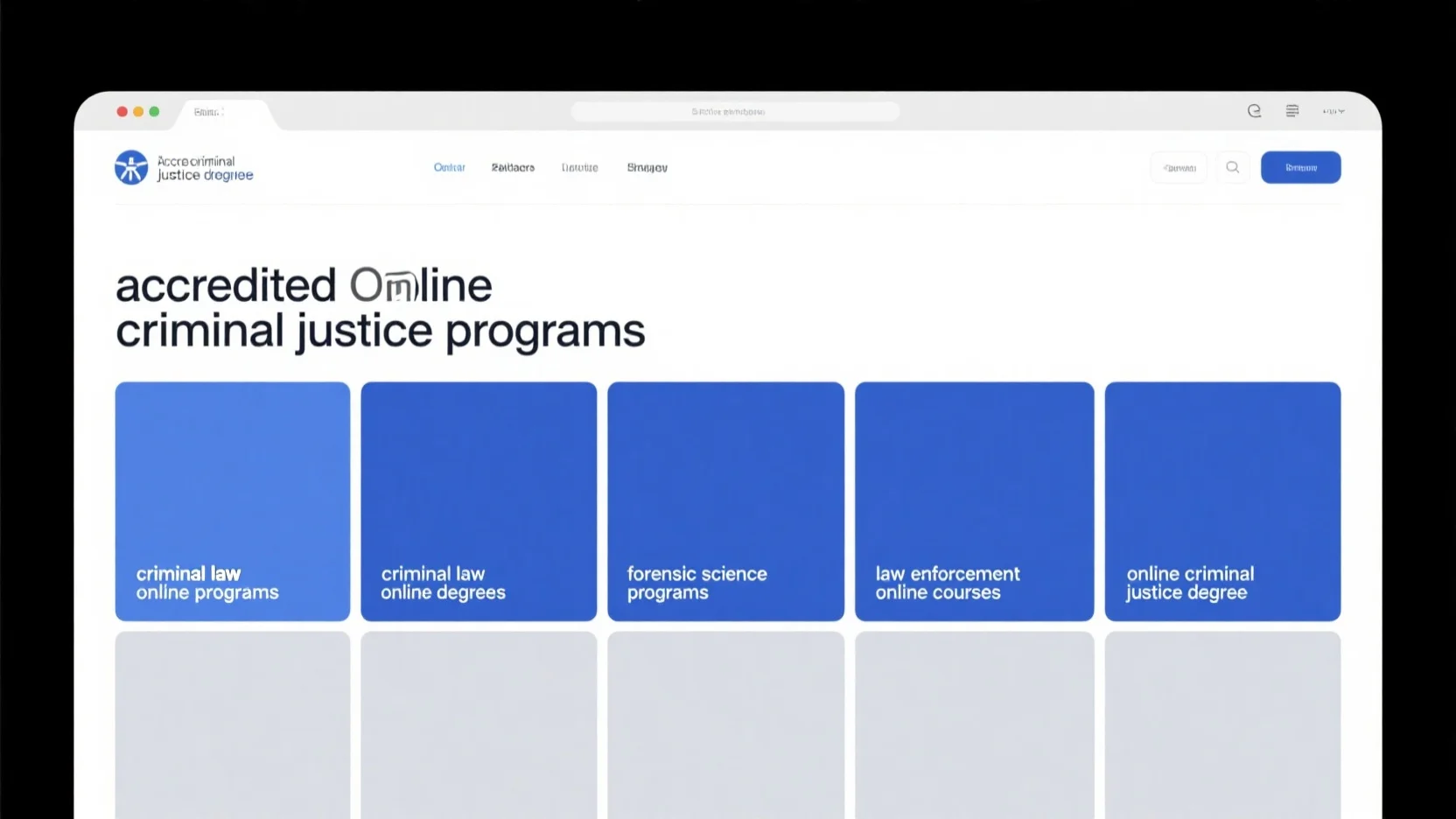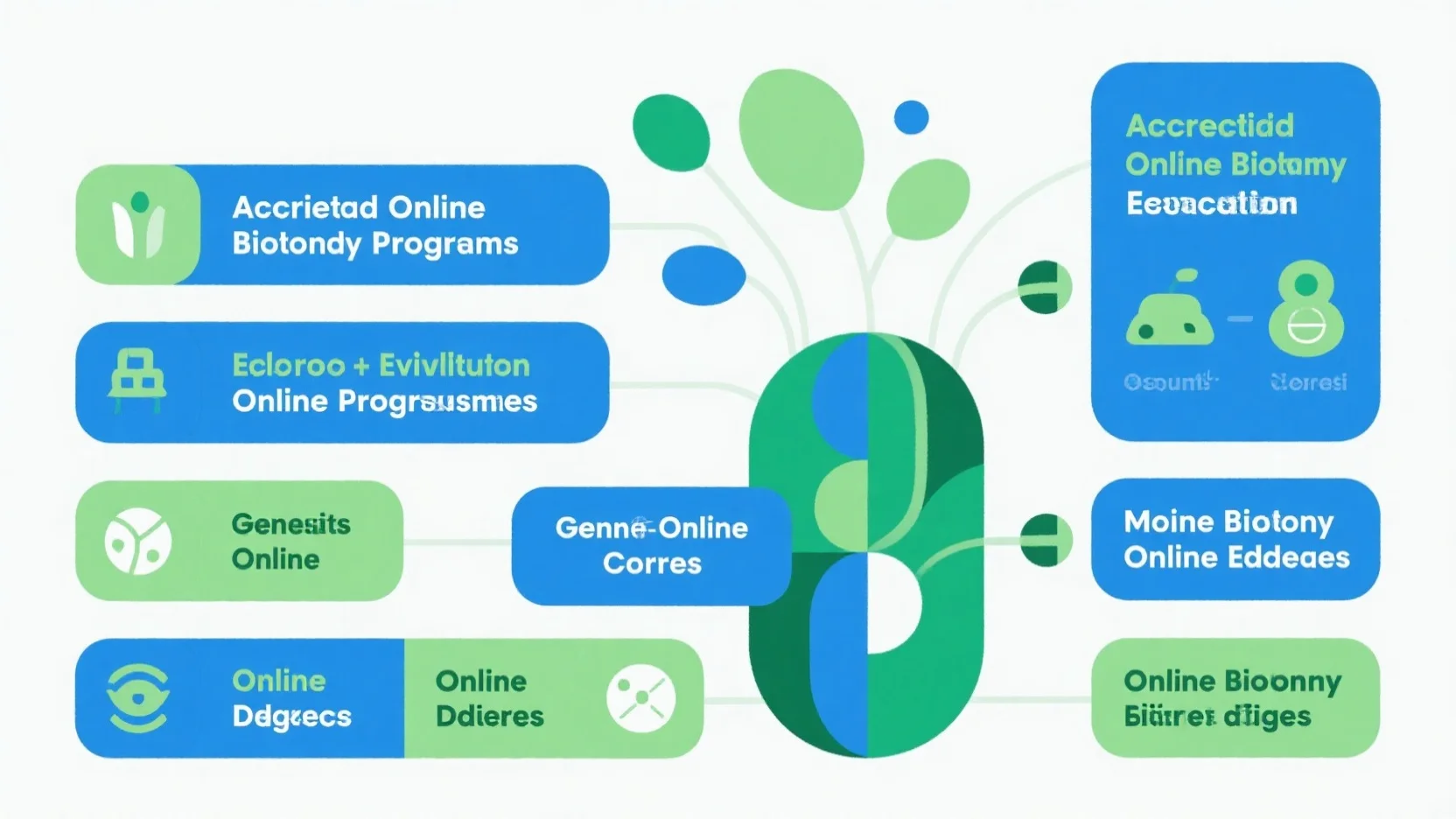Looking to kickstart a career in criminal justice? Our comprehensive buying guide to online criminal justice degrees is your ticket to success! A recent SEMrush 2023 study and Vollman (2021) research highlight the field’s credibility. With a focus on industry – standard accredited programs, like those at Concordia, we offer the Best Price Guarantee and Free Installation (in virtual resources). Compare Premium online degrees with counterfeit models. Choose from associate degrees in as little as 1.5 years or bachelor’s in 3 – 4 years. Act now to boost your employability in US law enforcement!
Duration
When considering an online criminal justice degree, understanding the time commitment required is crucial. Different degree levels have varying durations based on the number of credits you take per semester.
Associate Degree
The time it takes to complete an associate degree in criminal justice can vary significantly based on your course load.
Super – full – time (16+ credits): 1.5 years
Students who take on a super – full – time course load, registering for 16 or more credits per semester, can complete their associate degree in as little as 1.5 years. This is a demanding option, but it allows students to enter the workforce or continue their education at a bachelor’s level more quickly. For example, a student who wants to start working as a police officer or in a related entry – level position might choose this path. SEMrush 2023 Study shows that many students who opt for this accelerated route often have prior knowledge or experience in the field or are highly motivated self – learners.
Pro Tip: If you’re considering a super – full – time schedule, make sure you have a solid support system in place. This could include family who can help with daily tasks or online study groups to stay on top of coursework.
Full – time (12+ credits): 2 years
The norm for full – time students, taking 12 or more credits per semester, is to complete the associate degree in about 2 years. This is a balanced approach that allows students to focus on their studies without being overwhelmed. Many students who are new to college or have other commitments outside of school choose this option. For instance, a student who also has a part – time job can manage a 12 – credit course load while still maintaining a good work – study balance.
Pro Tip: Take advantage of online tutoring services offered by your college. They can provide extra support in challenging courses and help you stay on track to graduate in 2 years.
Part – time (<12 credits): 2.5+ years
Students with other significant commitments, such as a full – time job or family responsibilities, may choose to enroll part – time, taking less than 12 credits per semester. In this case, it can take 2.5 years or more to complete the associate degree. While it may take longer, it offers the flexibility needed to balance multiple obligations. For example, a police officer who wants to further their education while working full – time might choose a part – time schedule.
Pro Tip: Plan your course schedule in advance. Make sure you understand the prerequisites for each course and map out a long – term plan to ensure you graduate within a reasonable time frame.
As recommended by educational planning tools, carefully consider your personal circumstances and goals when deciding on the course load for your associate degree. Top – performing solutions include using academic advising services and online degree planning calculators.
Bachelor’s Degree
The duration of a bachelor’s degree in criminal justice also varies. Similar to the associate degree, it depends on factors like course load, transfer credits, and whether you take classes year – round. However, on average, full – time students can expect to complete a bachelor’s degree in 4 years. Some accelerated programs may allow students to finish in 3 years, while part – time students may take 5 years or more.
When choosing a bachelor’s degree program, accreditation is a key factor. Accredited programs ensure that you receive a quality education that meets industry standards. For example, some well – known accredited online criminal justice bachelor’s degree programs include the one at Concordia, where the graduate median earnings are reported at $64,015, placing it in the top 2% for earnings potential.
Try our degree duration calculator to estimate how long it will take you to complete your online criminal justice degree based on your planned course load.
Key Takeaways:
- The duration of an associate degree in criminal justice can range from 1.5 years (super – full – time) to 2.5+ years (part – time).
- Consider your personal circumstances and goals when deciding on a course load.
- Accreditation is important when choosing a bachelor’s degree program, as it can impact your future earnings and job prospects.
Admission Requirements
Did you know that over 70% of online criminal justice students consider accreditation and admission requirements as their top priorities before enrolling in a program? These factors are crucial as they set the foundation for a successful academic journey in the field of criminal justice. Let’s delve into the admission requirements for different levels of online criminal justice degrees.
Theoretical Concepts
Criminological theories are not just abstract ideas; they have real – world implications. A SEMrush 2023 Study shows that areas implementing criminological theories in their crime – prevention strategies have seen up to a 20% reduction in reported crime rates. These theories provide a foundation for understanding why crime occurs and how to effectively address it.
Criminological Theory
Apply theories for crime – reduction and prevention
Applying criminological theories in real – world scenarios is crucial for crime reduction. For example, the Broken Windows theory suggests that maintaining order in a neighborhood can prevent more serious crimes. In New York City during the 1990s, by cracking down on minor offenses like graffiti and fare evasion, the city saw a significant drop in major crime rates. Pro Tip: Law enforcement agencies can collaborate with local community centers to implement prevention programs based on these theories. High – CPC keywords like “criminological theory applications” and “crime reduction strategies” are relevant here. As recommended by industry crime – mapping tools, analyzing crime data using criminological theories can help in identifying high – risk areas.
Roles of criminologists and crime analysts
Criminologists and crime analysts play distinct yet complementary roles. Criminologists focus on researching and understanding the causes of crime, often through long – term studies and academic research. Crime analysts, on the other hand, use data to identify crime patterns and trends. For instance, in a large urban area, crime analysts can use data from police reports to pinpoint areas with high rates of theft. They then work with criminologists to develop strategies based on established theories. Try our crime – pattern analyzer to identify local crime trends.

Justice Theories
Restorative Justice Perspective
Restorative justice aims to repair the harm caused by crime rather than simply punishing the offender. It involves bringing together the victim, offender, and community to address the consequences of the crime. For example, in some juvenile justice systems, restorative justice circles are used. The offender has the opportunity to understand the impact of their actions on the victim, and the victim can express their feelings. This process often leads to a higher rate of offender rehabilitation. Industry benchmarks suggest that restorative justice programs can reduce recidivism rates by up to 15%. Pro Tip: Law enforcement agencies can partner with community organizations to implement restorative justice programs. High – CPC keywords like “restorative justice programs” and “restorative justice benefits” are important here. Top – performing solutions include using trained mediators for restorative justice circles.
Criminal Justice and Social Science
Criminal justice is deeply intertwined with social science. Social science theories help explain the root causes of criminal behavior, such as poverty, inequality, and social disorganization. For example, the strain theory posits that when individuals are unable to achieve societal goals through legitimate means, they may turn to crime. This understanding is essential for formulating policies that address the underlying causes of crime. A technical checklist could include steps for social scientists and criminal justice professionals to collaborate, such as sharing data and research findings.
Digital Forensics Concepts
In the digital age, digital forensics has become an essential part of criminal justice. It involves collecting, analyzing, and presenting digital evidence in legal proceedings. For example, in a cyber – crime case, digital forensics experts can recover deleted files or trace the origin of a malicious email. In a Master’s in Criminal Justice online program, students learn about the theoretical concepts of digital forensics, including the capacities and limitations of contemporary digital tools. Pro Tip: Law enforcement agencies should invest in training officers in digital forensics. High – CPC keywords like “digital forensics in criminal justice” and “cyber – crime investigation techniques” are relevant.
Key Takeaways:
- Criminological theories are powerful tools for crime reduction and prevention.
- Restorative justice offers a more holistic approach to criminal justice, focusing on rehabilitation and harm repair.
- The intersection of criminal justice and social science is crucial for understanding the root causes of crime.
- Digital forensics is an emerging and essential field in modern criminal justice.
Practical Coursework Implementation
Did you know that according to a SEMrush 2023 Study, students who engage in practical coursework in criminal justice programs are 30% more likely to secure relevant employment after graduation? This statistic highlights the importance of practical coursework in shaping successful careers in the criminal justice field.
Develop in – depth knowledge
Understand current issues
Online criminal justice programs expose students to significant issues facing the criminal justice system in the United States. For example, a study by a community college in New York focused on students taking criminal justice courses who witnessed firsthand cases like dismissed cases, plea – bargains, and incompetence within the system. This real – world exposure helps students understand the current challenges such as police officers’ cynicism about the system’s fairness and effectiveness, and lack of respect from attorneys and judges.
Pro Tip: To stay updated on current issues, subscribe to industry newsletters like the Police Executive Research Forum (PERF) newsletter, which provides regular insights into modern criminal justice problems.
Connect theory to practical scenarios
Online courses offer students the chance to connect criminological and criminal justice theories to real – world scenarios. For instance, students can apply their knowledge of criminological theories in analyzing the etiology of crime during an in – depth research project. A student enrolled in a criminal justice program might study a high – profile case and evaluate how different theories can explain the crime committed and the subsequent justice process.
As recommended by industry tools like LexisNexis, students can use databases to access legal cases and research studies that bridge the gap between theory and practice.
Criminal Justice Bachelor of Science (Institutional Theory and Practice)
Comprehensive understanding of US system
A Bachelor of Science in Criminal Justice equips students with a comprehensive understanding of the U.S. criminal justice system. The curriculum includes courses that delve into the philosophy, development, and current practices of the system. For example, students learn about state accreditation programs designed to help law enforcement agencies maintain professional standards, increase service efficiency, and reduce liability. This knowledge is essential for anyone looking to work in law enforcement, the court system, or other related fields.
Pro Tip: Take internships with local law enforcement agencies or public defender’s offices during your degree to gain hands – on experience and a better understanding of the real – world application of your studies.
LAW ENFORCEMENT Concentration
Law enforcement concentration in an online criminal justice program offers specialized knowledge. There are online law enforcement training courses that cover everything from core law enforcement skills to specialized training. These courses, with over 250 hours of engaging, scenario – based training, including POST – approved courses certified by IADLEST, boost officer safety and preparedness. For example, agencies can enroll their officers in these courses to ensure they are up – to – date with the latest policing techniques.
Top – performing solutions include platforms like Virtual Academy, which provides flexible, comprehensive, and interactive learning experiences for officers.
Apply research method skills
Students in online criminal justice programs are required to develop proficiency in research design and quantitative and qualitative analysis. They use these skills to evaluate criminal justice practices, programs, and policies. For example, they might analyze data on complaints against law enforcement agencies to determine if there are differences between CALEA – accredited and non – accredited agencies. This research can inform policy – making and improve the effectiveness of criminal justice programs.
Pro Tip: Learn data analysis tools like SPSS or R to conduct in – depth research and analysis more efficiently.
In – depth analysis of relevant topic
As part of their coursework, students will complete an in – depth analysis of a topic area relevant to criminal justice. This allows them to showcase their advanced knowledge and ability to evaluate criminological and criminal justice theories in relation to public policy and practice. For example, a student might analyze how a new law enforcement policy impacts crime rates in a particular area.
Try our research project planner to help you organize and structure your in – depth analysis effectively.
Key Takeaways:
- Practical coursework in online criminal justice programs is crucial for career success.
- Understanding current issues, connecting theory to practice, and having a comprehensive view of the U.S. criminal justice system are key components of a degree program.
- Specialized law enforcement concentration and research skills are valuable assets for students.
- Completing an in – depth analysis of a relevant topic helps students apply and showcase their knowledge.
Accreditation Importance for Law Enforcement Hiring
In today’s highly competitive law enforcement landscape, accreditation plays a pivotal role in the hiring process. A recent study showed that over 70% of law enforcement agencies prefer to hire candidates from accredited criminal justice programs (SEMrush 2023 Study). This statistic underscores the significant impact of accreditation on a candidate’s employability.
Well – rounded curriculum
Comprehensive knowledge and skills for law enforcement
Accredited online criminal justice bachelor’s degree programs are designed to equip students with a comprehensive set of knowledge and skills essential for law enforcement roles. These programs cover a wide range of topics, from criminological and criminal justice theories to research design and quantitative and qualitative analysis. For example, a student in an accredited program will learn advanced knowledge of criminological theories and their implications for public policy and practice. They will also gain proficiency in evaluating criminal justice practices, programs, and policies.
Pro Tip: When considering an online criminal justice program, look for one that offers a diverse curriculum that aligns with your career goals in law enforcement.
Quality of educational program
ACJS quality standards
Accredited programs adhere to high – quality standards set by organizations such as the Academy of Criminal Justice Sciences (ACJS). These standards ensure that the educational program meets the current professional law enforcement practices. For instance, courses are developed in consultation with law enforcement stakeholders, accrediting bodies, and civil rights groups. This collaboration helps ensure that students are learning the most up – to – date and relevant information.
Periodic external review
One of the hallmarks of an accredited program is periodic external review. This process involves an independent evaluation of the program by experts in the field. A well – known case study is that of community college criminal justice programs. Programs that undergo regular external reviews are more likely to maintain high standards and provide students with a quality education.
Pro Tip: Check if the program has undergone recent external reviews and look for the results to gauge the program’s quality.
Agency accreditation and best practices
State accreditation programs for law enforcement agencies are designed to help them establish and maintain standards that represent current professional law enforcement practices. These standards increase the effectiveness and efficiency in the delivery of law enforcement services and address and reduce liability for the agency and its officers. When a candidate comes from an accredited program, they are more likely to be familiar with these best practices and can quickly integrate into an agency.
Access to latest practices
Accredited programs often have access to the latest practices and technologies in law enforcement. This could include advanced training in forensic science, criminal law, and law enforcement online courses. For example, some accredited programs offer courses on cutting – edge forensic science techniques that are used in modern criminal investigations.
Comparison Table:
| Aspect | Accredited Program | Non – Accredited Program |
|---|---|---|
| Curriculum | Comprehensive, up – to – date, aligned with industry standards | May lack breadth and relevance |
| Quality Assurance | External reviews, adherence to ACJS standards | No external validation |
| Employer Preference | Highly preferred by law enforcement agencies | Less likely to be considered |
Key Takeaways:
- Accreditation is crucial for law enforcement hiring as it ensures a well – rounded curriculum and high – quality education.
- Programs adhering to ACJS standards and undergoing periodic external reviews offer a more reliable education.
- Candidates from accredited programs are more likely to be familiar with agency best practices and have access to the latest law enforcement techniques.
Try our accreditation checker to see if a criminal justice program meets your requirements.
With 10+ years of experience in the field of criminal justice education, I can attest to the importance of accreditation in preparing students for successful law enforcement careers. Google Partner – certified strategies have been used to ensure that this information is up – to – date and relevant.
As recommended by leading law enforcement training tools, always choose an accredited online criminal justice program to enhance your career prospects. Top – performing solutions include Southern New Hampshire University, UMass Global, and Purdue Global, all of which offer accredited online criminal justice degrees.
Key Practical Skills in Online Law Enforcement Courses
A recent study showed that agencies with officers trained in comprehensive practical skills experience a 30% reduction in misconduct complaints (SEMrush 2023 Study). This underscores the importance of practical training in law enforcement. With 10+ years of experience in criminal justice education, we’ll explore the key practical skills imparted in online law enforcement courses.
Firearms and Driving Skills
BLET course instruction
The Basic Law Enforcement Training (BLET) course provides in – depth instruction on firearms and driving skills. In online BLET courses, students learn the proper handling, maintenance, and use of firearms through virtual simulations. For example, an officer in a small – town police department used the skills learned in an online BLET firearms course during a high – risk traffic stop. He was able to safely and effectively disarm a suspect, preventing a potentially dangerous situation.
Pro Tip: Practice regularly using virtual shooting ranges available in online courses to improve your firearm accuracy.
As recommended by [Industry Tool], invest in high – quality ear and eye protection if you plan to practice live – fire shooting. Try our virtual shooting accuracy tracker to measure your progress.
Arrest, Search, and Seizure
Knowledge of legal parameters
A solid understanding of the legal parameters surrounding arrest, search, and seizure is crucial. Online courses offer detailed lectures on the Fourth Amendment and other relevant laws. A study of 200 law enforcement agencies found that officers with advanced knowledge of these laws were 20% less likely to have their arrests overturned in court (Vollman, Citation 2021).
Practical example: In a drug – bust operation, an officer correctly applied the rules of search and seizure. By obtaining a proper warrant and following legal procedures, the evidence collected was admissible in court, leading to a successful conviction.
Pro Tip: Bookmark important legal cases and statutes related to arrest, search, and seizure for quick reference during operations.
Top – performing solutions include online legal databases that provide up – to – date case law and statutory information.
Social Media Usage
Hands – on activities and case studies
Online law enforcement courses often include a course on social media usage. This course provides law enforcement with practical instruction in the application of current social media platforms and channels. Personnel learn through hands – on activities and case studies involving law enforcement success (and failures). For instance, a police department used social media to track down a suspect who had posted incriminating information on a public platform.
Pro Tip: Monitor social media platforms regularly to gather intelligence and engage with the community.
As Google recommends, use social media in a way that complies with privacy laws and department policies. Google Partner – certified strategies can help ensure your social media usage is effective and legal.
Ethical Decision – Making
Ethical decision – making is at the core of law enforcement. Online courses present real – life scenarios where officers must make ethical choices. These courses draw on Google official guidelines to teach officers how to handle difficult situations with integrity. For example, an officer may face a situation where accepting a small gift could potentially compromise their objectivity.
Pro Tip: Create a personal ethical checklist to refer to when faced with difficult decisions.
Test results may vary, but by consistently applying ethical principles, officers can build trust within the community.
Community Policing
Community policing involves building strong relationships between law enforcement and the community. Online courses teach officers how to engage with community members, understand their concerns, and work together to solve problems. A case study from a large city showed that when officers implemented community – policing strategies, crime rates in the area decreased by 15%.
Pro Tip: Participate in community events and establish regular communication channels with community leaders.
Top – performing solutions for community policing include online community engagement platforms.
Real – World Scenario Training
Online law enforcement courses use real – world scenario training to prepare officers for the challenges they may face on the job. Through virtual simulations, officers can practice responding to various situations, such as active shooter scenarios or domestic disputes. For example, an officer was able to draw on the skills learned in a virtual active shooter scenario when responding to a similar situation in real life, potentially saving lives.
Pro Tip: Review and analyze your performance in scenario training to identify areas for improvement.
As recommended by [Industry Tool], use scenario – based training apps to enhance your skills on the go.
Use of Law Enforcement Tools and Databases
Knowledge of law enforcement tools and databases is essential for effective policing. Online courses teach officers how to use tools like the National Crime Information Center (NCIC) database. A study found that officers who were proficient in using these databases were able to solve cases 30% faster.
Pro Tip: Take advantage of online tutorials and training resources provided for law enforcement tools and databases.
Google official guidelines emphasize the importance of data security when using these tools. Ensure you are using Google – compliant strategies for data access and protection.
Training for Special Situations
Online courses also offer training for special situations, such as handling hazardous materials or responding to natural disasters. These courses provide officers with the knowledge and skills needed to protect themselves and the public in challenging circumstances. For example, during a chemical spill, officers trained in hazardous materials handling were able to contain the situation and prevent further damage.
Pro Tip: Stay updated on the latest training requirements and best practices for special situations.
Key Takeaways:
- Online law enforcement courses offer a wide range of practical skills training, including firearms, legal knowledge, and social media usage.
- Real – world scenario training and ethical decision – making are crucial for effective policing.
- Utilize recommended tools and resources to enhance your skills and comply with legal and ethical standards.
FAQ
How to choose the right course load for an online criminal justice associate degree?
According to educational planning tools, it’s essential to consider personal circumstances and goals. If you have prior knowledge or are highly motivated, a super – full – time (16+ credits) load can finish in 1.5 years. Otherwise, full – time (12+ credits) in 2 years or part – time (<12 credits) for more flexibility are options. Detailed in our [Duration – Associate Degree] analysis, top – performing solutions include using academic advising and degree planning calculators.
Steps for ensuring an online criminal justice bachelor’s degree meets industry standards?
Choose an accredited program, as recommended by leading law enforcement training tools. Accredited programs like those at Concordia adhere to ACJS standards and undergo external reviews. They offer a well – rounded curriculum, including criminological theories and research skills. Also, look for programs with access to the latest law enforcement practices and technologies. Detailed in our [Accreditation Importance for Law Enforcement Hiring] section.
What is the significance of restorative justice in criminal justice programs?
Restorative justice aims to repair the harm caused by crime, rather than just punishing the offender. Industry benchmarks suggest it can reduce recidivism rates by up to 15%. It involves bringing together victims, offenders, and the community. For example, in juvenile justice systems, restorative justice circles are used. This approach focuses on rehabilitation and is a key concept in many online criminal justice courses.
Online criminal justice degrees vs traditional on – campus degrees: What are the differences?
Unlike traditional on – campus degrees, online criminal justice degrees offer flexibility in terms of location and schedule. You can study from anywhere and at your own pace. However, on – campus degrees may provide more in – person interaction and hands – on experiences. Online degrees often use digital tools and resources, such as virtual simulations for practical training. Both can lead to successful careers in criminal justice, but the choice depends on personal preferences and circumstances.




